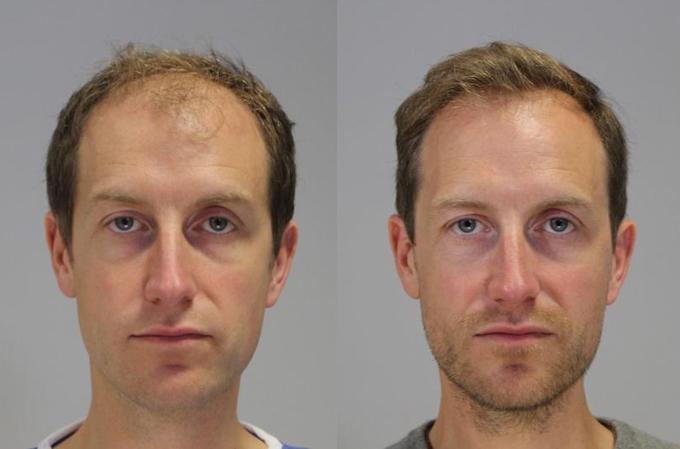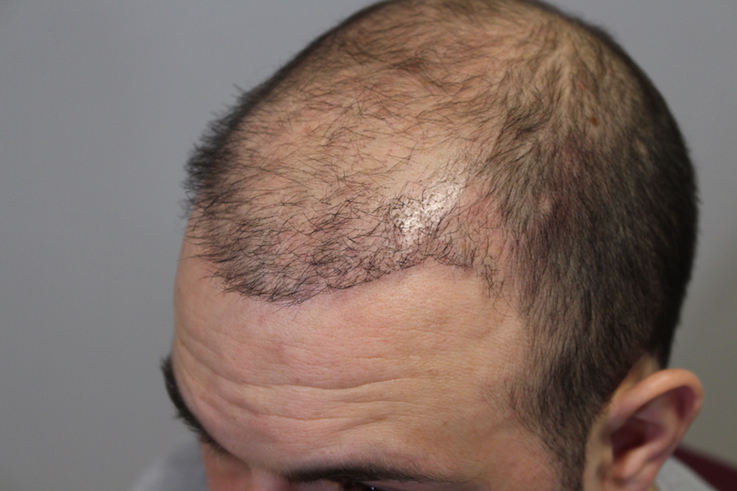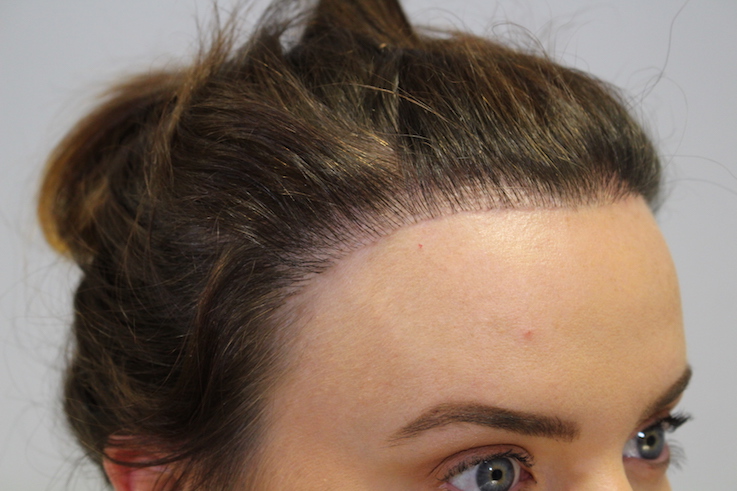How to avoid a hair transplant disaster
26th July 2018
Men and women with athletic bodies and perfect hairlines are seen all over magazines and TV. Social media then exposes us all to public scrutiny and can create an obsession with appearance.
So it’s no surprise that some people rush into booking a hair transplant if it is offered to them as a cheap and easy option.
And to be fair, a well-planned hair transplant by an artistic, ethical and skilled doctor can totally change lives for the better. It’s a great feeling when a patient comes in to show me their results. They have a glow about them; an air of increased self-confidence and contentment.
But it isn’t always quite that simple, or safe.
The dark side of the hair transplant world
Nowadays, clinics often show results of celebrity hair transplants. But these can be misleadingly enhanced by cover-up and concealer products. The unaware, or desperate, are more likely than ever to be tempted to leap into a poorly thought-out hair transplant decision.
Sadly, men are rushing into booking hair transplants without any understanding of the risks involved. Almost every week, I see patients that have fallen into this very trap.
Some of the worst results seem to happen when someone gets “sold” a hair transplant by a salesperson, without ever meeting the doctor who will perform the procedure. Often there may be no doctor involved in the surgery at all, or an unlicensed doctor is brought in from overseas.
Amazingly, I have seen many hair transplant disasters after young men have decided to have a spur of the moment hair transplant while on a boozy holiday with their mates. Sadly, this sort of decision really can ruin someone’s life. They are often left with strangely sprouting hair and scarring which haunts them on a daily basis.
The greatest worry is that many of the problems caused by a bad hair transplant can’t easily be fixed. Scars are permanent and if someone’s limited amount of donor hair has already been used up and wasted, there may not be enough hair left to improve the mess that has been made.
Although many patients are too ashamed and embarrassed to speak publicly about their distressing experiences, some men are willing to share their stories in the media and in online hair loss forums. This is a great way to educate others and, hopefully, guide people towards making safer, well-researched decisions.
How to stay safe in the hair transplant world
1. Is a website making exaggerated claims?
Any online search will reveal countless clinics claiming to be ‘the UK’s leading’ or ‘the UK’s best’ hair transplant clinic. Ironically, the best clinics are the least likely to make such claims.
Professional guidelines and standards set by the Department of Health, the Royal College of Surgeons of England and the British Association of Hair Restoration Surgery (BAHRS) are very clear: clinics and doctors should not make inaccurate or misleading claims about their level of experience. Claims such as ‘the UK’s leading’ will not be made by reputable clinics that abide by the BAHRS code of conduct.
2. Do you have confidence in the surgeon?
Always meet the doctor who will be performing your surgery and ask how much of the procedure is done by them, rather than unlicensed technicians. Ask how many other patients will be operated on that day.
Some patients come to see me having visited 7 or 8 clinics before. Some have been deliberating over their decision for 2 or 3 years. I love it when patients take their time over this important choice.
It may seem obvious, but check the surgeon’s experience and qualifications. Make sure they are affiliated with respected professional bodies such as the International Society of Hair Restoration Surgery (ISHRS) and the British Association of Hair Restoration Surgery (BAHRS).
A great indication of a doctor’s experience in hair restoration is a diploma from the American Board of Hair Restoration Surgery.
3. Are reviews legitimate?
Looking for honest and accurate before and after photographs, as well as genuine patient reviews and testimonials. Check that hair transplant stories and case studies are clearly documented with accompanying photos. Take care to avoid forums and review websites that allow fake reviews.
4. Is the clinic ethical and responsible?
An ethical approach is vital. Make sure the clinic truly values patients’ best interests and not turnover. Hair transplant surgery is not always suitable for everyone: a responsible surgeon would recommend it only if it is in the patient’s best interests.
Unethical practice includes offering time-limited discounts, which go against the recommendations of the Department of Health and the BAHRS.
When researched thoroughly, and when performed well, hair restoration can and should be a life-enhancing procedure delivering great results over a lifetime. Just make sure you do your research!













